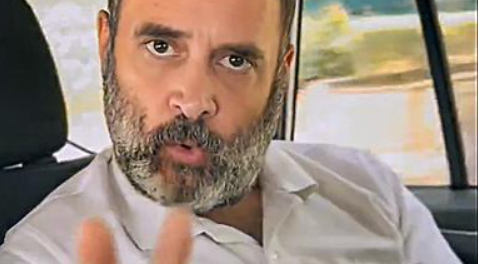Unveiling the Battle of Narratives: Congress’ Counter-attack on PM Modi’s Policies:-
PM Modi’s In the complex arena of Indian politics, where narratives clash and ideologies collide, one of the most potent battles being waged is the one between the ruling Bharatiya Janata Party (BJP) and the principal opposition, the Indian National Congress. At the heart of this clash lies a narrative of wealth, power, and governance. In recent times, the Congress has intensified its counterattack on Prime Minister Narendra Modi’s policies, particularly focusing on the themes of “drain of wealth” and “crony capitalism.”  ALSO READ:-for more information click on this link
ALSO READ:-for more information click on this link
The phrase “drain of wealth” conjures images of exploitation and economic injustice, echoing back to India’s colonial past. The Congress has strategically wielded this term to criticize the PM Modi’s government’s economic policies, alleging that they disproportionately benefit a select few while widening the economic disparities in the country.
Central to the Congress’ critique is the accusation of crony capitalism, a term used to describe the cozy nexus between big businesses and the government, resulting in policies that favor the interests of the wealthy elite over the welfare of the masses. The party argues that under PM Modi’s leadership, crony capitalism has flourished, leading to the concentration of wealth and power in the hands of a privileged few.
One of the key battlegrounds in this war of words is the issue of economic reforms, particularly the controversial demonetization and the implementation of the Goods and Services Tax (GST). Congress leaders have repeatedly lambasted these policies, alleging that they have inflicted immense hardship on the common man while failing to achieve their stated objectives. They argue that demonetization, touted as a decisive strike against black money, ended up disproportionately affecting the poor and small businesses, while the wealthy remained largely unscathed. Similarly, the GST, billed as a game-changer for India’s tax regime, has been criticized for its flawed implementation and adverse impact on small traders and businesses.
Furthermore, the Congress has targeted the PM Modi’s government over its handling of the economy, pointing to stagnant job growth, agrarian distress, and a widening wealth gap as indicators of its failure to deliver on its promises of inclusive development. The party has highlighted instances of corporate loan defaults and the government’s alleged reluctance to hold big businesses accountable, citing them as evidence of crony capitalism at play.
In the realm of public discourse, social media has emerged as a potent battlefield, where political parties vie for control over the narrative. The Congress has leveraged platforms like Twitter and Facebook to amplify its message and mobilize support, launching campaigns with hashtags such as #DrainOfWealth and #CronyCapitalism to galvanize public opinion against the Modi government’s economic policies.
However, the BJP has not remained silent in the face of Congress’ onslaught. Prime Minister Modi and senior BJP leaders have vigorously defended their government’s record, touting initiatives such as Jan Dhan Yojana, Mudra loans, and various welfare schemes as evidence of their commitment to empowering the poor and marginalized. They have dismissed the Congress’ allegations of crony capitalism as baseless propaganda aimed at undermining the government’s credibility.
As the battle of narratives intensifies, the stakes are high for both parties. With crucial state elections on the horizon and the specter of the 2024 general elections looming large, each side is leaving no stone unturned in its quest to sway public opinion in its favor. Ultimately, the outcome of this ideological struggle will not only shape the future of Indian politics but also determine the course of the nation’s economic trajectory. In the end, it is the Indian electorate that holds the power to decide which narrative resonates most strongly with their aspirations and concerns. ALSO READ:-“Pro-Palestinian Demonstration at Amsterdam University Dispersed by Police Amid Growing Campus Protests in Europe”




